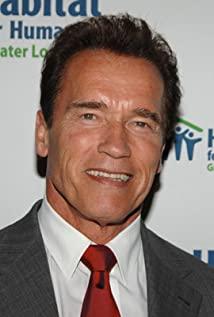I agree more with a balanced diet, but for contemporary people, it may indeed be necessary to increase the proportion of vegetarian diets in the diet.
Before deciding to take an action that may profoundly affect our own health, it is best that we also look at the possible problems with vegetarianism.
The following information comes from the negative expression in the [Vegetarianism] entry in Wikipedia, I hope everyone can listen to it.
In medicine, strict and long-term vegetarians may suffer from vitamin B12 deficiency, which causes neurological damage and cannot be recovered. Vitamin B12 is derived from bacteria in the soil, and no animal or plant can produce it on its own. Plant foods do not contain vitamin B12, and vegetarians are at risk of deficiency; taking some vitamin B12 nutritional supplements can reduce this risk. However, lacto-egg vegetarians or non-strict vegetarians can occasionally obtain vitamin B12 from animal foods, which can reduce deficiency problems. A healthy diet with adequate intake of animal foods can avoid vitamin B12 deficiency.
Strong reducing acids can have the effect of antinutrient (antinutrient, refers to the food components that can prevent the body from absorbing and using certain nutrients). They can prevent the body from being absorbed by combining with zinc, iron, etc. in the digestive system Dietary minerals [51]. Typical examples are oxalic acid, tannins and phytic acid, which are high in diets based on plant foods [52]. The diets of developing countries have less meat intake and higher intake of phytic acid-containing beans and unfermented whole-wheat bread, leading to a lack of calcium and iron in the diet of developing countries.[53] .
Vegetarians’ first choice for protein intake are beans, which are rich in hard-to-digest raffinose and stachyose. After entering the human colon, they are fermented and utilized by aerobic bacteria to produce intestinal gas, causing bloating and bowel irritation.
Carnitine is not contained in fruits, vegetables or other plants. Strict vegetarians are absolutely deficient in their bodies and are prone to carnitine deficiency.
Baked foods require plastic fats, and the use of hydrogenated vegetable oils instead of animal fats (such as butter) will face great health risks: trans fats consumed by humans are mainly derived from hydrogenated vegetable oils, which increase the risk of coronary heart disease more than saturated fats[ 54], is one of the important causes of hyperlipidemia and fatty liver, and promotes the development of Alzheimer's disease [55], the risk of ovulation dysfunction infertility will increase significantly. [56]
Cornell University’s research pointed out: Take India, which has the highest percentage of vegetarian diets in the world, as an example. Among generations of people who have been eating plant-based diets, vegetarian alleles have evolved. This allele can absorb omega-6 in vegetarian food. Fatty acids and omega-3 fatty acids. However, if the vegetarian family does not have a vegetarian tradition and lacks vegetarian alleles, it will be difficult for them to absorb omega-6 fatty acids and omega-3 fatty acids in a vegetarian diet. The imbalance of omega-6 fatty acids and omega-3 fatty acids may be more susceptible to inflammation, and through the association, increase the risk of heart disease and colon cancer. [57] Modern research has found that fish oil contains DHA and EPA, which are difficult for vegetarians to consume, and have multiple health effects.
Balanced vegetarian food
Diversified food: The daily diet should include whole grains/miscellaneous beans/yatoes, soybeans and their products, dark vegetables, fresh fruits and nut seeds, often eat mushrooms and seaweed, keeping milk and eggs easier to ensure a balanced nutrition .
Pay attention to the intake of key nutrients: vitamin B12, vitamin D, n-3 fatty acids, etc. Choose foods with high nutrient density (especially iron, zinc, and calcium). Choose fortified foods and supplements when necessary.
Reasonable collocation, preparation and cooking: collocation of staple foods; collocation of foods rich in vitamin C to promote iron absorption; blanching of oxalic acid-rich vegetables to promote calcium absorption; for phytic acid-rich whole grains, beans, and seeds Soaking / sprouting / fermenting to promote zinc absorption; limit oil, salt, sugar; try to use cooking methods such as steaming, boiling, and quick-frying.
11 high-calorie vegan foods can help gain weight. [58][59]
Nutrients and common sources of nutrients that vegetarians are more likely to lack:
Protein: Daily intake of beans (especially soybeans and their products rich in high-quality protein) and nut seeds, quinoa and yeast are also rich in high-quality protein
n-3 Polyunsaturated Fatty Acids: Perilla Seed, Chia Seed, Flax Seed and Its Edible Oil, Canola Oil/Canola Oil, DHA Algae Oil, Walnut, Chinese Kale, Kale, Spinach
Pro-vitamin A carotenoids: sweet potatoes, carrots, spinach, pumpkin, parsley, lettuce (leaf lettuce), coriander leaves, beet leaves, water spinach, seaweed (fresh), Chinese cabbage, watercress, mustard greens (small leaves), amaranth Leaves, cantaloupe
Vitamin B12: The only reliable sources are fortified foods (including nutritional yeast) and supplements, and lactostin can only meet part of the needs
Vitamin C: fresh dates, kiwi, strawberry, longan, lychee, orange, persimmon, citrus, grape, grapefruit, mango, pineapple, golden cauliflower, pepper, pea sprouts, rape stalk, cauliflower, sweet potato leaves, bitter gourd, broccoli, Coriander, amaranth, asparagus, lotus root, cabbage, cabbage, seaweed (fresh), toon, spinach, cabbage, edamame, leek, white radish, tomato, potato, sweet potato, chestnut
Vitamin D: Sun, fortified foods, supplements, sun-dried mushrooms
Calcium: tahini, hazelnuts, almonds, soy products, milk, golden cauliflower, shepherd's purse, carrot stalk, kelp, potherb mustard, sweet potato leaves, rape stalk (white), small rapeseed, kale, coriander, toon, Chinese cabbage, small Chinese cabbage, broccoli, figs, mulberries, citrus, buckwheat, oats, millet
Iron: sesame paste, hazelnuts, bean paste, red fermented bean curd, soy sauce, soybean paste, yeast, raisins, strawberries, lentils, soybeans, cowpeas, lotus root flour, red adzuki beans, sorghum, mung beans, buckwheat, millet, oats, whole wheat, barley, black fungus , Mushrooms, edamame, broad beans, seaweed, kelp, amaranth, toon, coriander, spinach, Chinese cabbage, rape stalk
Zinc: pumpkin seeds, watermelon seeds, pecans, black sesame seeds, hazelnuts, pine nuts, almonds, cashews, black beans, soybeans, green soybeans, broad beans, toon, mushrooms, leek stalks, peas, garlic sprouts, dried mulberries, fresh dates, figs, Wheat germ, oats, black rice, buckwheat, whole wheat
Selenium: Selenium-rich foods, Brazil nuts, cashews, almonds, pumpkin seeds, watermelon seeds, almonds, soybean paste, bean paste, kelp, mushrooms, shiitake mushrooms, golden cauliflower, cabbage stalk, garlic (purple skin), green onions (red skin) ), mulberries, eggs, konjac flour, wheat germ, pinto beans, dried lentils, steamed bread, noodles
Iodine: iodized salt, algae (large difference in content)
View more about The Game Changers reviews









